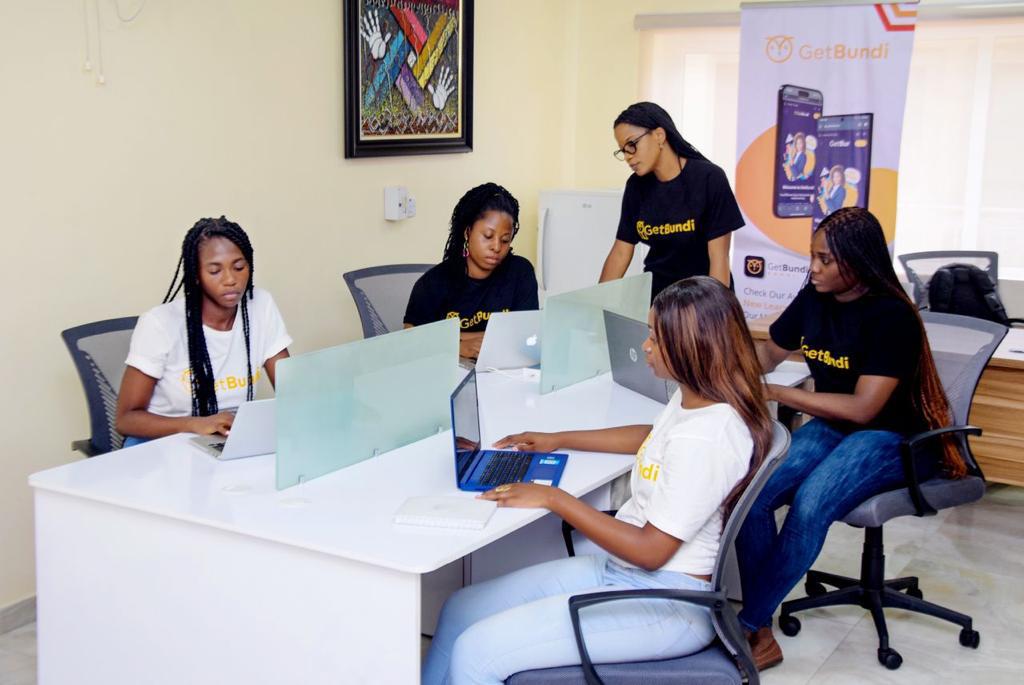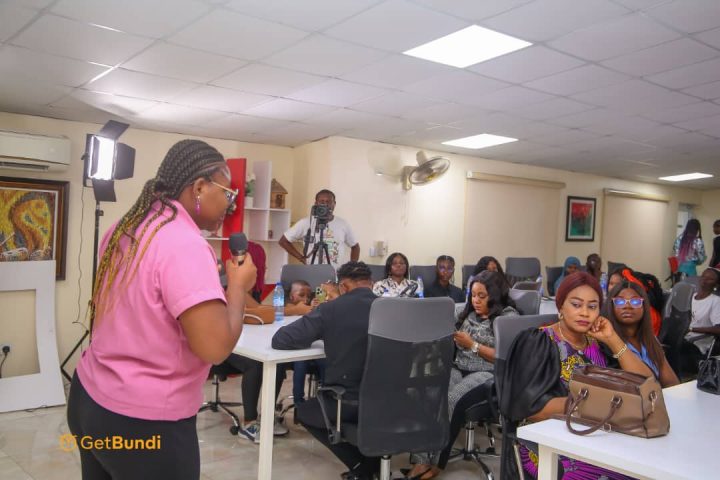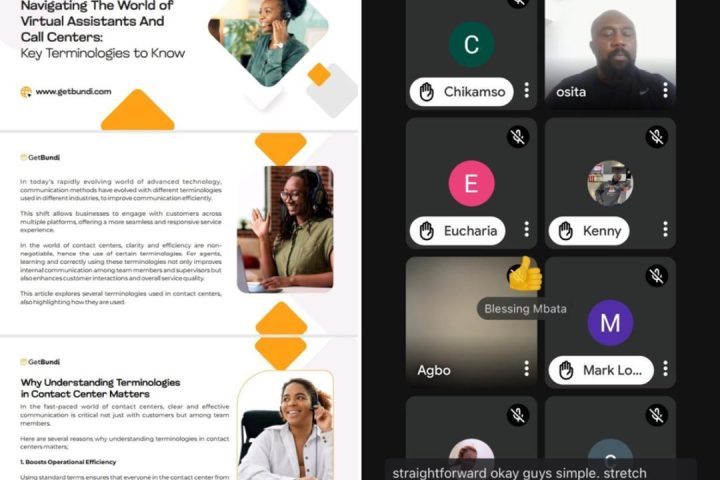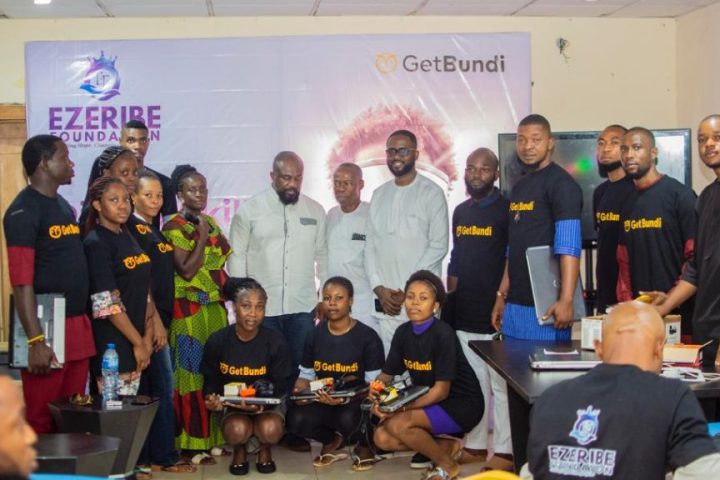With a population of approximately 200 million, Nigeria is home to half of West Africa’s over 100 million young people aged 15-35 years. This should ordinarily be a huge blessing. However, among a good number of these young people, there is an overwhelming digital skills gap that has been linked to the high unemployment rate in Nigeria. The lack of digital skills has been named as a major reason why many graduates produced yearly from the country’s tertiary institutions are unable to secure employment in the labour market.
To buttress this point, a 2023 survey conducted by GetBundi STEM and Digital Skill Education Technology company involving 100 NYSC members showed that only 19 of them have any form of digital skill, and they were mostly Microsoft Excel and basic knowledge. All of the 7 that have basic knowledge of programming, machine learning, and data science studied outside Nigeria – 5 in the UK, I in the United States and 1 in Malaysia. Most of them are active on social media as 89 have active Instagram, Facebook, and Twitter accounts, and 11 have LinkedIn accounts. However, they have little or no knowledge of any digital skills. About 15 carry one form of science based field certificate or the other but have no practical knowledge when tested in their areas of study.
This situation, at a time when digital skills rule the world, is worrisome, though the young people are not entirely to blame. The education system takes a huge chunk of the blame. The education system has often been criticized, and rightly, for not being updated with the rapidly evolving digital landscape. The curriculum used in many Nigerian universities and other tertiary institutions is outdated and does not adequately cover the practical aspect of relevant digital skills. Practical digital skills that would better prepare the youths for jobs and self-employment are all lacking in the current education system.
Having recognized the need to address this issue, having taken note that is important to promote digital literacy and skill development among youths, government agencies, nonprofit organizations, and private sector entities have implemented programs aimed at equipping Nigerian youths with the necessary digital skills that would see them gainfully employed and able to thrive in today’s digital economy. Some of the efforts by these organizations to bridge the digital skills gap include initiatives such as coding boot camps, online training platforms, partnerships with technology companies, and entrepreneurship programs that focus on digital innovation. These initiatives aim to provide Nigerian youths with opportunities to learn and apply digital skills, thereby increasing their employability and entrepreneurial prospects.
It should be noted that addressing this issue does not entirely depend on the government; it requires a collaborative effort between the government, educational institutions, private sector organizations, and individuals to provide accessible and relevant digital skills training to Nigerian youths. Addressing the digital skills gap among Nigerian youths, especially among graduates, requires a multi-pronged approach.
In this regard, Getbundi, has articulated some strategies that can be implemented. They are as follows:
Update educational curriculum
Most secondary and tertiary institutions in Nigeria use outdated and irrelevant curriculum to teach students, which is devoid of digital skills. To equip these youths for the digital economy, it is pertinent that the curriculum is updated with relevant skills such as coding, data analysis, cybersecurity, among others.
Promote digital literacy programs
Digital literacy programs that target individuals who are already in the workforce or have limited educational opportunities should be promoted. These programs can offer training workshops, online courses, and resources to enhance digital skills. Public-private partnerships can be formed to increase the reach and effectiveness of such initiatives.
Strengthen digital infrastructure
There is a need to strengthen digital infrastructure to improve access to reliable internet connectivity across the country. This includes expanding broadband infrastructure and reducing the cost of internet services. Access to affordable and reliable internet is crucial for individuals to acquire and enhance digital skills.
Raise awareness and change mindsets
Awareness campaigns should be carried out occasionally to highlight the importance of digital skills in the current job market and overall societal development. This can help change mindsets and encourage individuals, parents, and employers to prioritize digital skills acquisition and support relevant initiatives.
Encourage lifelong learning
There should be the promotion of lifelong learning and continuous upskilling. Individuals should be encouraged to pursue online courses, attend workshops, and participate in digital communities to stay updated with evolving technologies and acquire new skills.
The arrival of the fourth industrial revolution has, no doubt, ushered in a new era of globalization, with significant changes and disruptions across various industries, necessitating the prioritization of digital skills. Information and Technology experts say digital skills are required more than ever before to stay relevant and competitive in the global economy, which is now driven by technology.
In a bid to address the digital skills gap in Nigeria and Africa, especially among Nigerian graduates, GetBundi has developed STEM-related courses for secondary school students, based on the West African School Certificate curriculum, and digital skills courses to equip everyone, young or old, with relevant 21st Century job-ready skills.
The platform also has micro-sliced courses for impactful learning with 107 skillful instructors. Individuals can get verified and go remote after learning some digital skills such as coding, artificial intelligence, graphics, video editing, cybersecurity, and much more in less than 6 months.
Getbundi believes that equipping Nigerian youths with relevant digital skills can help build a skilled workforce better equipped to meet the demands of the modern economy.





